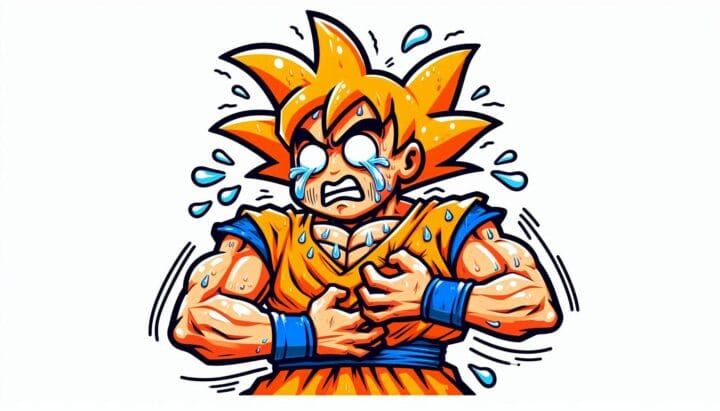Anxiety Chest Pain: Causes, Symptoms, and Relief
Table of Contents

Anxiety Chest Pain: Causes, Symptoms, and Relief
Meta Description: Discover the link between anxiety and chest pain. Learn about causes, symptoms, and effective relief strategies for anxiety-related chest discomfort.
Meta Tags: anxiety chest pain, panic attacks, heart palpitations, stress relief, breathing exercises
URL: anxiety-chest-pain-causes-symptoms-relief
Anxiety chest pain can feel like your heart’s trying to escape your ribcage. It’s a scary, confusing sensation that leaves you wondering: Is this anxiety, or am I having a heart attack? Let’s dive into the world of anxiety chest pain and uncover what’s really going on in your body when anxiety strikes.
The Anxiety-Chest Pain Connection
Anxiety and chest pain are like two dancers in a complicated tango. One leads, the other follows, but sometimes it’s hard to tell which is which. When anxiety hits, your body goes into full-on fight-or-flight mode, and that can wreak havoc on your chest.
The Fight-or-Flight Fandango
Picture this: You’re faced with a stressful situation. Your brain hits the panic button, flooding your body with stress hormones. Suddenly, your heart’s racing, your breathing quickens, and boom – chest pain enters stage left.
Symptoms: Is It Anxiety or Something Else?
So how do you know if your chest pain is from anxiety? Let’s break it down:
Anxiety Chest Pain Symptoms
- Sharp, stabbing pain
- Tightness or pressure in the chest
- Heart palpitations
- Shortness of breath
- Sweating
- Dizziness
Red Flags: When It’s Not Just Anxiety
- Severe, crushing chest pain
- Pain that radiates to your jaw or left arm
- Nausea and vomiting
- Bluish lips or fingertips
If you’re experiencing these red flag symptoms, don’t wait. Seek medical help pronto.
The Panic Attack Puzzle
Panic attacks are anxiety’s evil twin. They can hit out of nowhere and often come with intense chest pain. It’s like your body’s hitting the panic button for no apparent reason.
Panic Attack or Heart Attack?
Here’s the tricky part: panic attacks can feel a lot like heart attacks. Both can cause chest pain and breathing difficulties. The key difference? Panic attacks usually peak within 10 minutes. Heart attacks tend to start gradually and worsen over time.
Triggers: What Sets Off Anxiety Chest Pain?
Identifying your triggers is like finding the key to a lock. Once you know what sets off your anxiety chest pain, you can start to manage it better. Common triggers include:
- Public speaking
- Financial stress
- Relationship issues
- Health concerns
- Work pressure
The Hyperventilation Trap
Anxiety can lead to hyperventilation, which is like breathing on steroids. You breathe so fast that you blow off too much carbon dioxide. The result? Your chest muscles tighten, leading to that familiar ache or pressure.
Breaking the Cycle
To break free from hyperventilation:
- Slow your breathing
- Focus on exhaling fully
- Try breathing through pursed lips
- Use belly breathing techniques
Coping Strategies: Taming the Chest Pain Beast
Now that we’ve covered the why’s and how’s of anxiety chest pain, let’s talk solutions. Here are some strategies to help you find relief:
The 4-7-8 Breathing Technique
- Inhale for 4 counts
- Hold for 7 counts
- Exhale for 8 counts
- Repeat 4 times
This technique is like a reset button for your nervous system.
Grounding Exercises
Try the 5-4-3-2-1 method:
- Name 5 things you can see
- 4 things you can touch
- 3 things you can hear
- 2 things you can smell
- 1 thing you can taste
It’s like anchoring yourself in the present moment, pulling your mind away from anxious thoughts.
Physical Techniques: Calming Your Body to Calm Your Mind
Your body and mind are connected like two dancers in a tango. When one moves, the other follows. Here are some physical strategies to ease anxiety chest pain:
Progressive Muscle Relaxation: The Full-Body Chill
Start at your toes and work your way up, tensing and then relaxing each muscle group. It’s like giving your body a massage from the inside out.
Exercise: The Natural Anxiety Buster
Exercise is like a wonder drug for anxiety. It releases endorphins, improves sleep, and boosts self-esteem. Find something you enjoy, whether it’s dancing, hiking, or playing a sport.
When to Seek Help: Knowing Your Limits
While these strategies can be incredibly helpful, sometimes you need extra support. If anxiety chest pain is a regular uninvited guest in your life, it’s time to call in the pros. A mental health professional can help you develop coping strategies and may recommend treatments like:
- Cognitive Behavioral Therapy (CBT)
- Medication
- Mindfulness practices
Remember, asking for help isn’t a sign of weakness. It’s a power move.
The Mind-Body Connection: It’s All Connected
Your mind and body aren’t separate entities. They’re more like conjoined twins, constantly influencing each other. That’s why managing anxiety chest pain often involves a holistic approach:
- Regular exercise
- Healthy diet
- Good sleep habits
- Stress management techniques
Think of it as tuning up your whole system, not just fixing a single part.
Conclusion
Anxiety chest pain can be a frightening experience, but understanding its causes and learning effective coping strategies can make a world of difference. Remember, anxiety is a normal human experience, but it doesn’t have to control your life. By recognizing your triggers, practicing relaxation techniques, and seeking professional help when needed, you can manage anxiety chest pain and reclaim your peace of mind. You’ve got this, and you don’t have to face it alone.
FAQs
- Can anxiety chest pain last for days?
While anxiety chest pain typically subsides once the anxiety attack passes, persistent stress can lead to ongoing chest discomfort. If chest pain persists for days, it’s important to consult a healthcare provider. - Is it possible to have anxiety chest pain without feeling anxious?
Yes, sometimes physical symptoms of anxiety can occur even when you’re not consciously feeling anxious. This is known as somatization. - Can certain foods or drinks worsen anxiety chest pain?
Yes, caffeine, alcohol, and sugary foods can potentially exacerbate anxiety symptoms, including chest pain. - How can I tell the difference between anxiety chest pain and heart-related chest pain?
Anxiety chest pain often feels sharp and stabbing, while heart-related pain is usually described as a squeezing or pressure. However, it’s always best to seek medical attention if you’re unsure. - Can children experience anxiety chest pain?
Yes, children can experience anxiety and its physical symptoms, including chest pain. If you notice this in a child, it’s important to seek professional guidance.
Citations:
[1] https://www.healthline.com/health/anxiety/anxiety-chest-pain
[2] https://www.talkiatry.com/blog/can-anxiety-cause-chest-pain
[3] https://www.woodlandsheartinstitute.com/blog/anxiety-and-chest-pain-are-they-linked
[4] https://www.medicalnewstoday.com/articles/319496
[5] https://www.gulfwestmedicalassociates.com/blog/anxiety-and-chest-pain-are-they-linked
[6] https://www.ncbi.nlm.nih.gov/pmc/articles/PMC181226/
[7] https://khealth.com/learn/anxiety/how-to-tell-if-shortness-of-breath-is-from-anxiety/
[8] https://mypsychiatrist.com/blog/how-to-tell-if-shortness-of-breath-is-from-anxiety/














Post Comment